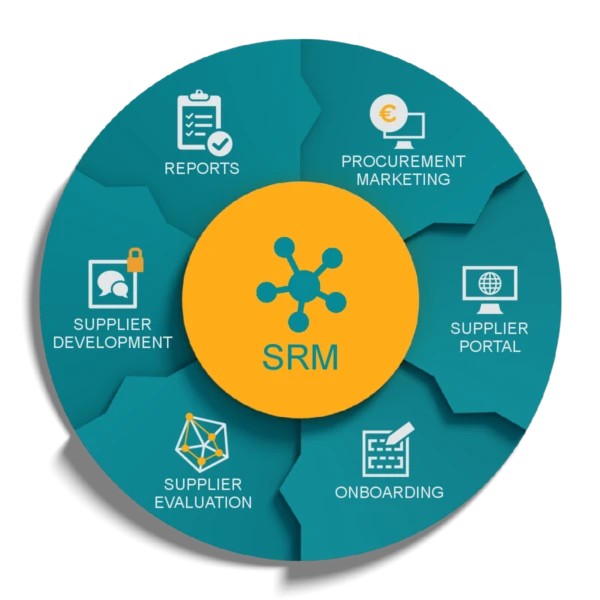First of all, let’s discuss what a supplier is. A supplier is a company or an individual that provides raw materials, products or services to a business. A supplier plays an important part in a business by getting quality products from a manufacturer and providing them to a retailer or a distributor at a reasonable price. So, basically, a supplier acts as an intermediary between the manufacturer and the retailer, while ensuring that goods are of high quality.
In order to gain a competitive edge and meet the high standards of consumers, most businesses rely heavily on their supply chains. The efficiency of every business’ operations greatly depends on workplace organization, what technology is being used, and their network of distributors or suppliers. Moreover, the ability of an organization to work with their suppliers in order to get their products or services delivered to the final consumers as cheaply and quickly as possible. This ability is what will determine how profitable a business will be.
The entire organization can suffer if there is a weakness anywhere in the supply. However, effective management of suppliers in order to improve your business’ operations is an important step that can help your business grow.
Suppliers take care of sourcing raw materials that are required for producing high quality goods, and continue to look for better options for raw materials as the market starts to become saturated. Therefore, it is important for organizations to manage suppliers and work closely with them.

Important roles of suppliers
As manufacturers are looking to sell a lot of stock and retailers expect a certain level of quality, the role of a supplier in a business can be very demanding. Therefore, it is important for suppliers to manage relationships and to be flexible. We will now look at some other important stuff that suppliers have to take care of.
Full compliance: This means that suppliers have to comply with all local and state laws or guidelines that are relevant, including human rights protection and child labor.
Equal opportunities for all retailers: This means that suppliers are expected to provide all retailers with equal opportunities to do business with them, and they should not reject a retailer due to their location, or other such reasons.
Best price possible: Suppliers have to guarantee not only the best quality, but also the best price to retailers in order to build a mutually beneficial relationship. This will help create trust between them and ensure repeat business in the future.
No conflict of interest: Suppliers have to avoid doing business with those persons or parties who they might have a conflict of interest with, this includes friends, colleagues and family members. This helps avoid the risk of unfair treatment among other customers.
Supplier Relationship Management
Supplier Relationship Management, also referred to as SRM, is a systematic process to assess the contributions of suppliers in a business. This also involves planning and managing relationships with all the suppliers of a business. This could include utility suppliers, raw material suppliers or cleaning services suppliers. A business can ensure efficient supply of products and services for the organization or the company by managing these relationships with the suppliers successfully.
It is important for a business to create and maintain a Supplier Management Process that can effectively provide help and guidance when it comes to managing suppliers. This will help organizations and companies to find the right suppliers that can meet all of their business needs. Moreover, with the help of a Supplier Management Process, a business doesn’t just get to find the right suppliers, a business can also build trust with the suppliers and work together with them to improve the quality of products or services.
Advantages of Supplier Relationship Management
It is worth noting that suppliers are entities that exist outside of the business. This means that the organizations and the companies will be careful with the information they give out to the suppliers. While managing relationships is important for a company, it is more important for the suppliers. Suppliers should feel like the business values them, this will encourage them to provide excellent services seamlessly and go above and beyond to meet the expectations of the business.
Effectively managing relationships with suppliers could reduce the churn rate, which means that suppliers will want to stay and work with the business. It is better to work with two or three suppliers who can provide all the different materials a business requires. It becomes difficult to reduce costs and improve the supplier services if you’re working with many different suppliers.
When a company and the suppliers work together closely, they can work together to foster innovation and through this, the business and the suppliers can improve their offering dramatically.
Feedback and open communication becomes easier as businesses build strong relationships with their suppliers. Through collaboration, a company can give suggestions to the suppliers as to how they can improve their services to them.
Suppliers develop a better understanding of the business as feedback and suggestions become common. The suppliers will be able to make better decisions as to what products or materials the company might need, and the business will know when they can order so the suppliers can deliver the products and materials on time.
To conclude, it wouldn’t not be wrong to say that the business benefits in a lot of ways by building and managing strong, lasting relationships with the suppliers. By looking after each other and understanding the full capabilities of the other party, both the suppliers and the business can help each other grow.


